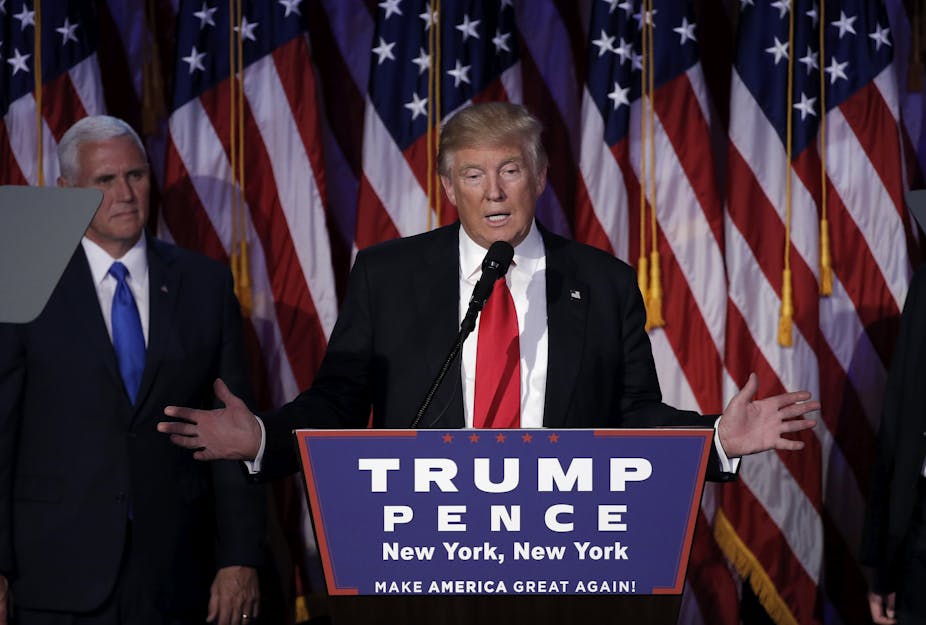Donald J Trump has declared victory in the US presidential election. The candidate took the stage in New York just before 3am local time to announce that his rival, Hillary Clinton, had called him to concede the race.
“The forgotten men and women of our country will be forgotten no longer,” the president-elect told a packed room of supporters at the Hilton hotel.
“We will get along with all nations willing to get along with us,” he added.
What does this stunning turnaround mean for the rest of the world? The Conversation Global asked a panel of international scholars to reflect on Trump’s election and assess its significance for their region.
Salvador Vazquez del Mercado: Mexico will face hardships under Trump
Donald Trump has won the election against all expectations – except for those of his supporters. The Brexit-like failure to predict his victory will surely haunt pollsters and hurt public confidence in polls for a long time.
The consequences of his victory will, of course, be much graver than the crisis of prediction. Even if Trump comes through with only a fraction of his campaign promises – which seems more likely now that both chambers of Congress will be controlled by Republicans – markets will react quite negatively, the Mexico peso, which has already suffered a significant depreciation, may fall further. And these are only the short-term consequences of Trump’s victory.
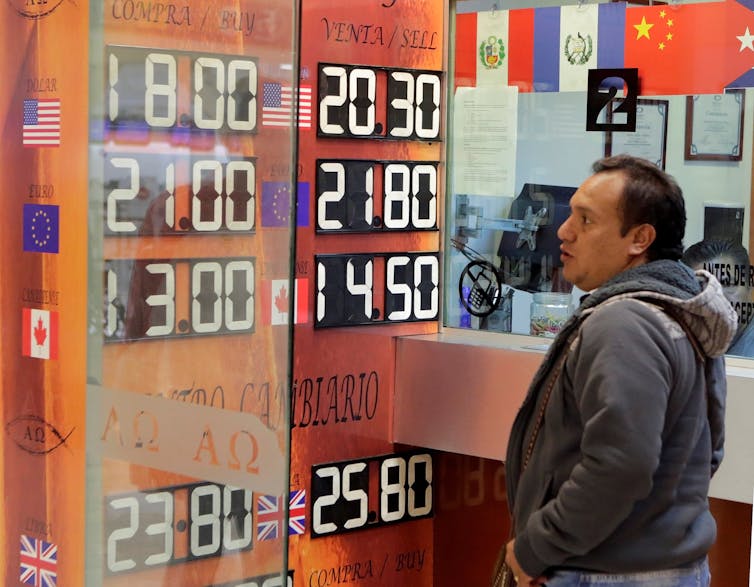
The wall along the US-Mexico border may well be impossible to build and the millions of undocumented immigrants in the US may not be immediately deported. And, hopefully Trump will not use the nuclear codes at all. But his victory still spells severe trouble ahead for Mexicans, and many other minorities living in the US, who were continually vilified during his campaign.
For Mexico, the end of NAFTA would lead to a severe restriction of trade with the US, which, added to an expected increase in interest rates south of the border and a reduction in the remittances sent by Mexicans up north, will quite probably lead to a severe economic crisis.
In the longer term, the relationship between Mexico and the United States will undergo a severe reconfiguration because, come January, Trump will probably take a very aggressive stance against the country. The future is uncharted and, in the short term, quite complicated.
Janjira Sombatpoonsiri: the end of the liberal democracy project?
Trump’s rise to power may put an end to liberal democracy as propagated by the US and its western allies in the post-Cold War era. Thailand is a good place to contemplate the trajectory and consequences of the end of this project.
Having been dominated by military governments, Thailand underwent democratisation in the early 1990s. It joined other countries in Latin America, Asia, and Eastern Europe in the “third wave of democracy”. This period saw the proliferation of civil society groups and institutionalisation of progressive ideas, particularly rights and justice. Unfortunately, elected governments faced allegations of corruption and inefficiency. And Bangkok’s middle class eventually lost patience, demanding a return to strong military rule.
Trump’s presidency potentially hints to authoritarian governments in Thailand and other societies that certain norms attached to liberal democracies can now be suspended. It’s likely that the coming Trump administration could be more silent than previous administrations about the crackdown on rights groups and dissidents in Thailand, and elsewhere. American pressure on the incumbent Thai junta to hold an election soon could also lessen.
In the age of anti-liberal democracy, fighting for retaining its norms will be harder in Thailand and elsewhere. If liberal democracy is no longer defensible and authoritarianism is not an option, progressive forces around the world need to gather pace and create a new political alternative that goes beyond this dead-end street.
Jonathan Rynhold: for Israel, less tension but less security
Under Donald Trump, relations between US and Israel are likely to be smoother than under Obama. However, in an underlying sense Israel will be less secure.
There are three reasons for this: first, Trump’s erratic temperament, second his extensive flip-flopping on Middle East policy, and third, and most importantly, his isolationist instincts.
Although Trump has said contradictory things about Israeli-Palestinian relations, he is likely to pay less attention to the issue and thus allow Israel’s right-wing government greater leeway on issues of contention such as settlements. Paradoxically, this will encourage Obama to promote a UN Security Council resolution on the issue, the prospect of which very much concerns Israeli prime minister Benjamin Netanyahu.
Israel benefits hugely from an internationalist America. When the US takes a step back, as it did under Obama, the vacuum is filled by greater instability and hostile forces. Trump is more isolationist than Obama and he has openly questioned whether the US would stand behind its alliance commitments. This may embolden Israel’s enemies. Still, Israel can look after itself, and fears of American unreliability may push Egypt and Saudi Arabia to deepen their strategic co-operation with Israel.

Finally, Israel views Iran as the major strategic threat. Trump has said he would take a harder line on Iran, but in the interim his disengaged approach would allow Iran to increase its power, thereby multiplying the costs of confronting Iran in the future.
Rut Diamint: Trump doesn’t care about human rights
Before Barack Obama’s election in 2008, largely due to the policies of George W Bush, some sectors of the American inteligentsia were suggesting that the US had abdicated world leadership. The Council on Foreign Relations specifically wrote on the loss of American relevance for Latin America and the Caribbean.
In truth, though, the US is and continues to be the single most determining nation for Latin America. Trump’s election will have particular impact in four areas.
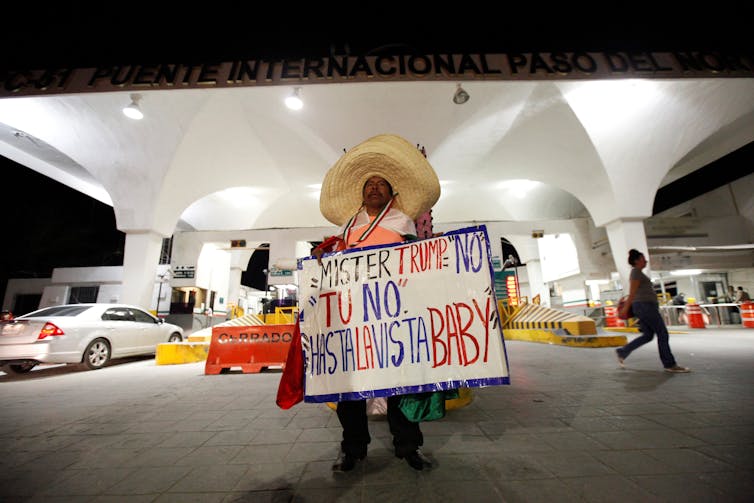
First, the economy. Between January and August of 2016, the US-Mexico trade balance ran a deficit on the US side of US$ -41,568.1 million. With Central and South America, on the other hand, the US shows a positive trade balance of US$20,199.0 million. Note that commercial exchange between Mexico and the US is four times that of the rest of the region. Trump’s promise to separate the two nations by building a wall, even if it never happens, will be profoundly damaging economically and politically.
High levels of violence, organised crime and drug trafficking are top concerns for Latin America. Under Trump, Congress will continue to be influenced by the defence industry and invest heavily in a militarised drug war. And Trump has the support of the powerful NRA gun lobby.
Trump has promised to undo recent advances in US policy toward Cuba, which under Obama had transitioned from isolation to diplomacy. Where negotiation and economic bonds had begun to strengthen, he will reimpose the embargo and counterintelligence efforts. This will divide the region.
Finally, Trump’s proposed “task force” to deport immigrants already in the US, block others from coming in and build a Mexico border wall (paid for by Mexico) is xenophobic, discriminatory and alienating.
Andrea Peto and Weronika Grzebalska: Trump a boost for illiberial regimes in Europe
For Central Eastern Europe, Trump’s victory is a green light for the consolidation of illiberal majoritarian regimes which promise people a sense of existential security at the cost of individual freedoms, minority rights and checks and balances.
Trump’s election will definitely strengthen the neo-conservative, fundamentalist networks and shift the global political balance in the direction of familialism, nationalism and further away from human rights and an open society. Weak states such as Poland and Hungary in which democratic transition privileged free market measures over social and cultural ones are all the more vulnerable to the loss of a strong, democratic, pro-human rights voice.
Clinton’s defeat might also serve as a wake up call to the last of the hard-headed supporters of the neoliberal status quo in Central and Eastern Europe. Those who still believe illiberal turns in Poland and Hungary are just a local, provisional backlash, who think it is still possible to go back to the political solutions from the pre-illiberal era will have to rethink their position.
With the victory of Trump, human rights supporters are pushed into a doubly difficult situation. Not only do they have to protect the little provisions there are left and create a space of resistance but also at the same time reformulate their message. This message should be different from going back to the pre-Trump era, which has been the prison of technocratic, quasi-rational policy discourse for way too long. Instead it should revive great ideologies and offer an equally captivating political vision capable of re-enchanting voters.
Subarno Chattarji: Trump and India
It is in some ways too early to think about the impact of a Donald Trump presidency on India-US relations. Some patterns between the 2014 elections in India and the current one in the US are, however, discernible.
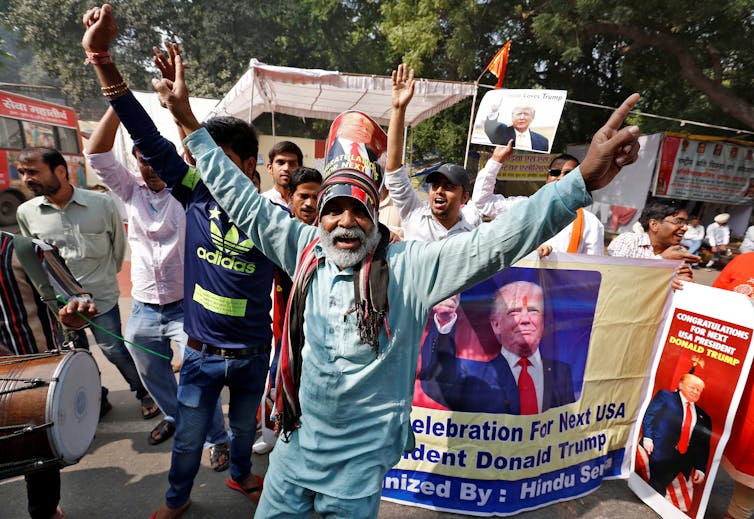
Trump’s election represents the victory of a strong man – “I alone can fix it” – railing against media, political, and intellectual elites in whose favour the system is “rigged”. His victory is indicative of the insecurities and resentments of the majority and the desire to return to a purer, better, “original” America, which was largely white and where everyone knew their place.
While American isolationism, exceptionalism, and xenophobia are not new, they find unique expression in Trump. Indian Prime Minister Narendra Modi was similarly elected on premises and promises of better days and the idea of a charismatic strong man leading the nation out of the morass of poverty, unemployment, secular politics, elites, minority appeasement etc.
Like Trump, the current political leadership in India is emblematic of an us-versus-them mentality, intolerant of dissent, critical thinking, or inconvenient institutions. Unsurprisingly, Trump has many fans in India and among Indian immigrants in the US.
Richard Maher: the view from Europe
In a stunning electoral upset, Donald Trump has defeated Hillary Clinton to become the 45th President of the United States. Virtually every pre-election forecast suggested a comfortable or even decisive Clinton victory. Instead, Trump – a man that many European leaders and citizens view as manifestly unqualified and unprepared for the position – will become president of the world’s sole superpower in January.
Trump’s victory is almost certainly being met across European capitals this morning with alarm, shock, and dread. Trump has called the NATO alliance “obsolete”, spoken admiringly of Russian President Vladimir Putin, and said the British vote in June 2016 to exit the European Union was “a great thing”.

Unlike in the United States, the European public was solidly against the idea of a Trump presidency. In a poll published by the Economist on November 8 showing how other countries would vote in the US election, huge majorities favoured Clinton. According to a Pew Research survey published in June, overwhelming majorities of Europeans polled said they had “no confidence” that Trump “would do the right thing regarding world affairs”.
Now European leaders must anticipate how a Trump administration will affect transatlantic relations and the many common challenges the United States and Europe face, from an increasingly assertive Russia, a relentless migration crisis that threatens to tear Europe apart, and Britain’s future in the EU.
More broadly, Trump’s election questions the future of US global leadership. Since the end of World War II, the United States, along with key European partners, built and then sustained an open, rules-based international order defined by free trade, military alliances, and international institutions such as the United Nations, International Monetary Fund, and World Bank. With Trump’s victory, the very future of this liberal international order is in peril.
William Case: what Trump’s victory means for Southeast Asia
With so many countries in the region already leaning toward China, does Donald Trump’s election to the US presidency matter for Southeast Asia? It does, at least a little.
To see understand how, imagine what the impact would have been if Hillary Clinton had won. She maintained a strong interest in trade, even if forced by voters during the election campaign to backtrack on the Trans Pacific Partnership. She vigorously denounced China’s takeover of the South China Sea, even as claimants in Southeast Asia have begun to cave in. And she might have retained some of the good will in Indonesia — and in Myanmar — that Barack Obama was able to generate. So Clinton might have slowed, though not reversed, China’s suffocating embrace of Southeast Asia.
After all, Southeast Asia is not a topmost concern for the US. But for China, it is. And China offers leaders in the region irresistible inducements, namely, near bottomless investment and lending for high speed railways, ports, and energy grids. To be sure, as the bills come due and exclusive economic zones are lost, citizens may rue the terms into which their leaders have entered. But by then, Hillary Clinton’s presidency would have passed.
By contrast, with Donald Trump in the White House, Southeast Asia’s entry into China’s orbit will quicken. Indeed, his repudiation of trading relations and security commitments seems to leave countries in the region with no alternative. And his anti-Muslim vitriol will add steam, especially in Indonesia, Malaysia, and the Philippines.
Trump’s presidency, then, will accelerate Southeast Asia’s progress along China’s new Silk Road. But interestingly, by doing so, the costs for Southeast Asia may grow apparent much sooner.
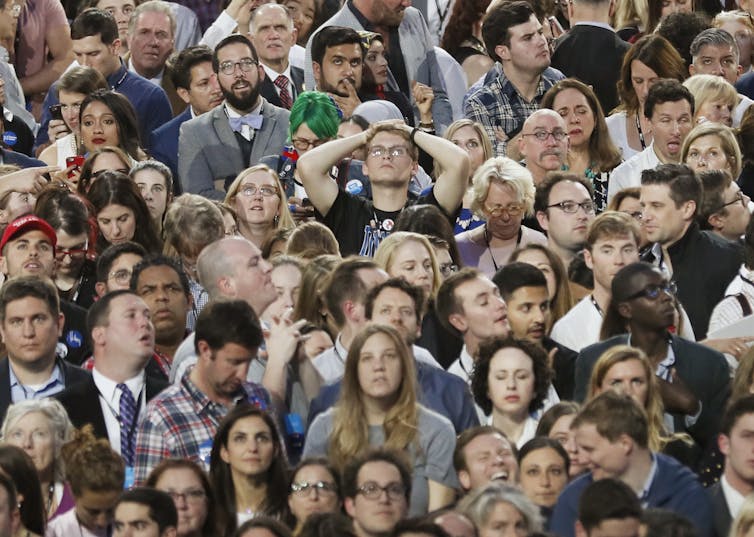
Jay Batongbacal: issues in the South China Sea will go on the back-burner
Donald Trump taking the reins of the US presidency could mark the sunset on Pax Americana in the Asia Pacific, and clear away any remaining resistance to China’s rise to regional preeminence.
A relatively isolationist and localised focus on the part of his administration as he attempts to fulfil his electoral promises would likely leave issues such as the South China Sea on the back-burner. ASEAN hedging patterns will cause member states to gravitate towards China even more.

The US rebalancing in Asia under President Barack Obama, and the country’s alliance commitments in the region could also be severely undermined given Trump’s lack of appreciation for the role played by America’s security relationships in US global political and economic leadership. The only hindrance to this lies in the fact that US geostrategic policy for the Asia-Pacific has been a largely bipartisan matter in the US Congress.
But Trump’s tenuous links to the Republican Party, lack of real leadership thereof, and non-attachment to Republican ideals, puts into question the responsiveness and effectiveness of that policy in the face of more solid and coordinated leadership within regional powers such as China and Russia, which will have an unparalleled opportunity to fill in any voids the US may leave.
For the Philippines and its President Rodrigo Duterte, this is a fortunate coincidence as it accommodates his oft-stated aversion to US influence and commentary on his domestic policy, and distrust of the US.
Miguel Angel Latouche: the triumph of anti-politics
Donald Trump has proved something that we Venezuelans have known since the 1998 election that catapulted Hugo Chávez to the presidency of our country: when people perceive problems and feel politicians don’t represent society’s broad interests; when the demands of certain sectors are not satisfied, leading to a sense of exclusion; when people want change – then a “strong man” figure becomes really electorally attractive.
With Trump, we saw an aggressive campaign by a man who said what he thought without ever thinking it over much, who called things as he saw them and who proposed simple solutions to complex problems (whether they’re feasible responses or not). For the first time in a long time, the US has a president who genuinely does not belong to Washington, nor to the party logic of his country. It’s a triumph of anti-politics.
Beyond Trump’s business endeavours, television experience and some of his scandals, we know little about the new US president. Who is Donald Trump, really? What are his political ideas and proposals?
It’s interesting to observe, for example, the profound contradiction between the aggressive tone of his campaign and the conciliatory style he adopted for his 3 am acceptance speech. But one can’t act against one’s own nature, and fundamentally Trump has shown himself to be a charismatic populist.
For Latin America, he’s promised to harden relations with Cuba and Venezuela, build a wall along the Mexico border, and tighten immigrant policies. We’re looking at a strong presidency here, perhaps too strong, with Congress on his side, and a leader who has espoused conservative positions but is also changeable when it comes to tough topics. This makes him hard to predict and susceptible to shifting with public opinion.
It’s quite possible that Trump will return the US to a modified version of Cold War power politics. Only time will tell if Trump is leading us to a more orderly and secure world or on a march toward insanity.

